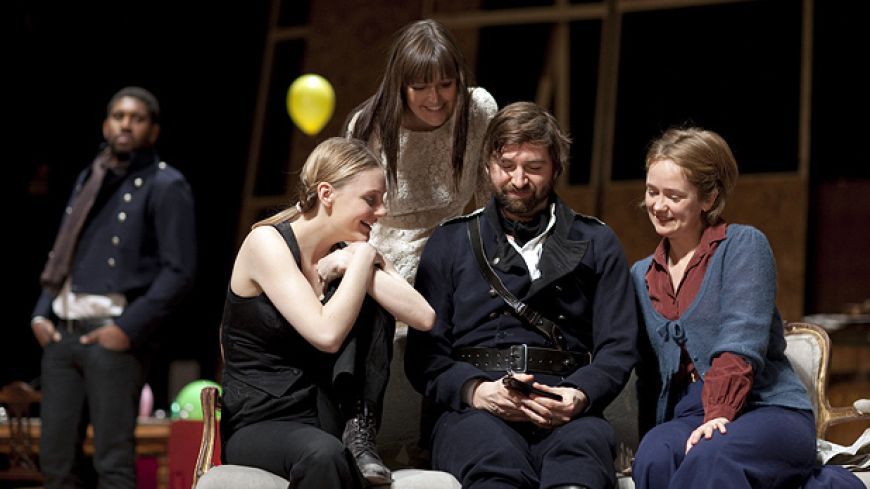
Theatre collective Filter have been creating daring and playful productions since 2003, and this interpretation of Chekhov’s Three Sisters, in collaboration with director Sean Holmes, is the latest in a series of revamping much-loved classics.
Three Sisters is a mesmerizing study into the dissatisfaction of humans and the constant quest for happiness which seems unreachable for the trio of siblings.
Chekov’s original is a sometimes witty and often poignant piece, yet this production which uses Christopher Hampton's version, seems to flip the emotions and play as often witty and sometimes poignant.
Set in a mish mash of furniture, musical instruments and general clutter and with an air of Brechtian acknowledgment rather than dowdy naturalism, the piece begins with the desperate pace of people so fed up that they are determined to drink and sing their troubles away. Everyone in the community is trapped inside futility, resulting in a concert of discontents, and over the course of more than three years that the action spans, the tone grows increasingly morbid.
The open plan action and the mash up of furniture and technical equipment is echoed in the delivery which is stilted and plays against the natural rhythms of speech, which is an interesting approach but means there is very little emotive connection for the audience to engage with. All the interactions are mannered and the subtle rhythms of Chekov’s dialogue are not realised, as the audience are very aware this is a performance. The collective languor of the characters and their self-absorption gives off a pompous air as all attempt to find purpose in life.
The resulting effect is a production that has many creative touches but very limited pathos, with the many uses of microphones scattered around the stage and a boiling kettle to signify a storm, seeming to be arty for arts sake rather than being utilised for any real purpose.
© Lindsay Corr, March 2010
Until Sat 27 March

